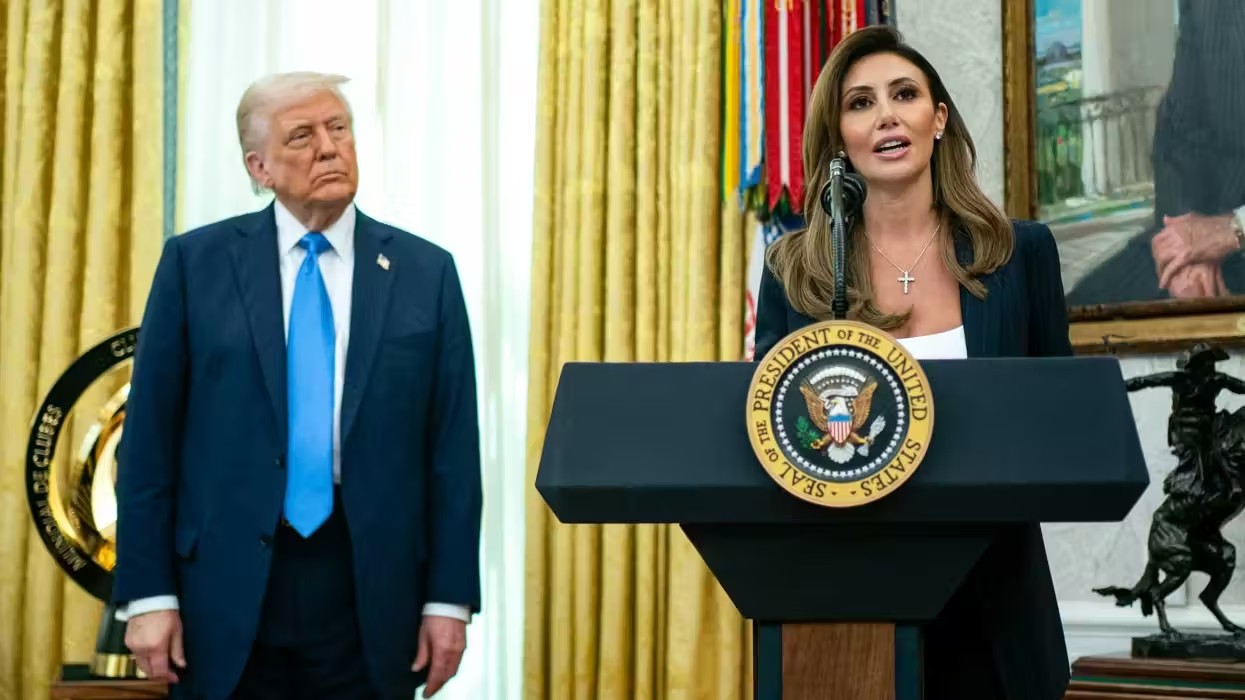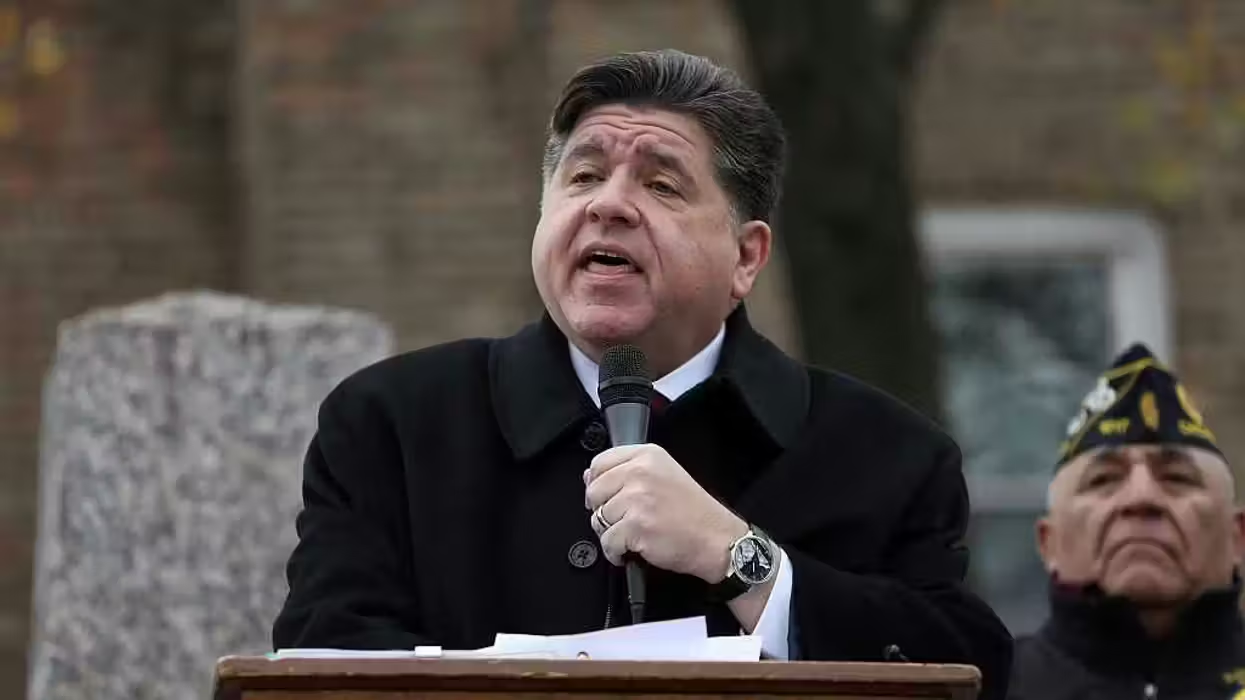© 2025 Blaze Media LLC. All rights reserved.
" none of the things he believes about Kennedy or the Kennedy assassination is remotely true"

With the economy tanking and public perception of Barack Obama's ability to lead continuing to diminish, stark defenders of the President and the far-left appear to have chosen to combat their ideological opponents by promoting a cross between nostalgia, fear and misinformation.
Frank Rich appears to purvey this narrative in his "What Killed JFK" piece published in the most recent edition of New York Magazine. Here is a segments from the contentious editorial where Rich argues "The hate that ended his (JFK) presidency is eerily familiar":
"What defines the Kennedy legacy today is less the fallen president’s short, often admirable life than the particular strain of virulent hatred that helped bring him down. After JFK was killed, that hate went into only temporary hiding. It has been a growth industry ever since and has been flourishing in the Obama years."
In the piece, Rich commemorates William Manchester's 1967 "The Death of a President" and the recently published Stephen King novel "11/22/63," for the rejection of the Warren Commission finding that there was "'no evidence' of any connection between Oswald's crime and Dallas's 'general atmosphere of hate.'" Rich follows this observation by associating Kennedy's assassination as a product of right-wing fervor, followed by an inflammatory comparison to the political environment today:
"Immediately after the assassination and ever since, the right has tried to deflect any connection between its fevered Kennedy hatred and Oswald’s addled psyche with the fact that the assassin had briefly defected to the Soviet Union. But at the time even some Texans weren’t buying that defense. An editorial in the Dallas Times Herald chastised its own city for supplying “the seeds of hate” and “the atmosphere for tragedy.” The editor of the Austin American wrote that “hatred and fanaticism, the flabby spirit of complacency that has permitted the preachers of fanatical hatred to appear respectable, and the self-righteousness that labels all who disagree with us as traitors or dolts, provided the way for the vile deed that snuffed out John Kennedy’s life.”[...]
"Both presidents were centrists in the Democratic parties of their respective eras. Neither could be remotely described as radical, let alone “socialist,” as critics of both have contended. Both are ardent capitalists largely content to leave corporate America to its own devices. Both are wary of the institutional left. Both are hawkish by their party’s standards. But for all this moderation, they, like the similarly centrist Bill Clinton, who was accused of enabling drug running and murder on the Wall Street Journal editorial page, have inspired a hatred so nightmarishly disproportionate to their actual beliefs, actions, and policies that it’s worthy of Stephen King’s fiction.
The culture wars that Americans have been fighting since the sixties are generally thought to have begun in the late sixties—in the paroxysms of student revolt and urban riots sparked by the spiraling of Vietnam and the twin murders of Martin Luther King and Bobby Kennedy in 1968"
[..]
"In truth, it was already too late. America’s violent culture wars had started before JFK was shot. They were all on display in Oswald’s Dallas. At least in 1963, polling showed that only 5 percent of the country—a fringe—subscribed to the radical anti-government views championed by the John Birch Societyand other militants of the right. These days, that fringe, whether in the form of birthers or the tea party or the hosts of Fox & Friends, gives marching orders to a major political party."
Commentators have immediately criticized the historical accuracy of Rich's association between Oswald and the right, as well as his accusation that the likes of "Fox & Friends" gives orders to the GOP as a 2011 version of the John Birch Society. James Pierson of the Manhattan Institute wrote Tuesday of what he called a "delusional article" and "the latest effort to recycle Camelot myths:"
"It is probably useless to point out to Mr. Rich that none of the things he believes about Kennedy or the Kennedy assassination is remotely true so that none of them has anything to do with the politics of the present time.The late Richard Hofstadter, writing about the Kennedy assassination in 1964, coined the term 'the paranoid style in American politics' to describe a mindset prone to concocting conspiracies and to connecting events by tenuous threads of logic and evidence. Hofstadter was thinking primarily of the far right, mostly anti-communists, when he developed this insight, though he cited applications to the far left as well. In retrospect, the Kennedy assassination was an event though which the paranoid-style was grafted on to modern liberalism, thereby giving to it a conspiratorial, and irrational outlook, particularly where 'the right' is concerned. Mr. Rich's depiction of 'the right' as a menace and a public danger is not that far removed from the portrayal of communism as a threat to the republic among the followers of Sen. Joseph McCarthy. In keeping to this script, Mr. Rich invents a series of 'facts' about the Kennedy assassination and then lists them in an indictment of conservatives as parties to the crime. It is a near textbook application of the paranoid style."
Hot Air notes Rich's willingness to put the microscope under the political tone of 1963 Dallas while avoiding the ideology of the man who actually pulled the trigger:
"What’s revealing about this spin, in which a guy who defected to the Soviet Union and later tried to assassinate a hard-right U.S. general was somehow driven mad by right-wing antipathy to Kennedy, is that it’s unnecessary to protect the left. Oswald wasn’t a mainstream liberal or, lord knows, a mainstream Democrat. He was a fringe leftist, an honest-to-goodness commie. The Oswald apologists could, if they liked, simply emphasize his ideological extremism — his fringiness — as the key to his anti-Kennedy mania. But for whatever reason, they seem to feel obliged to defend his leftism by blaming the right for the “climate of hate” that supposedly drove him to it. "
Rich has unceremoniously manipulated American tragedies in the past as a means to forward his liberal views. Rich wrote in New York Magazine ten years after 9/11:
"When we woke up on September 12, we imagined a whole host of civic virtues that might rise from the smoldering ruins. The New Normal promised a new national unity and, of all unlikely miracles, bi-partisanship: The still-green president had a near-perfect approval rating for weeks. We would at last cast off our two-decade holiday from history, during which we had mostly ignored a steady barrage of terrorist threats and attacks. We would embrace a selfless wartime patriotism built on the awesome example of those regular Americans who ran to the rescue on that terrifying day of mass death, at the price of their own health and sometimes their lives.What arrived instead, sadly enough, was another hijacking—of 9/11 by those who exploited it for motives large and petty, both ideological and crassly commercial. The most lethal of these hijackings was the Bush administration’s repurposing of 9/11 for a war against a country that had not attacked us."
Whether it is Rich's latest piece on JFK, the article he wrote in August trying to use clever wordplay associated with the horrors of 9/11 to condemn George W. Bush, or Paul Krugman casting blame following the Gabbi Giffords shooting with very little knowledge of the mentally ill shooter's actual political opinions, several commentators on today's left seem ardent and unapologetic in promoting fear and sadness as a means to smear the GOP, Tea Party and conservatives in general.
Want to leave a tip?
We answer to you. Help keep our content free of advertisers and big tech censorship by leaving a tip today.
Want to join the conversation?
Already a subscriber?
more stories
Sign up for the Blaze newsletter
By signing up, you agree to our Privacy Policy and Terms of Use, and agree to receive content that may sometimes include advertisements. You may opt out at any time.
Related Content
© 2025 Blaze Media LLC. All rights reserved.
Get the stories that matter most delivered directly to your inbox.
By signing up, you agree to our Privacy Policy and Terms of Use, and agree to receive content that may sometimes include advertisements. You may opt out at any time.






